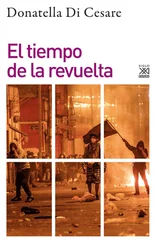Seized by wonderment, the philosopher sees what the others do not see and – vice versa – does not see what everyone sees. This striking distraction from the common sense would come at a hefty price; for the prosaic laugh would give way to much more hostile and violent forms. In a tragicomedy which passed also through farcical settings, dark, baleful, cruel tones came to prevail, leading up to the final drama. Scorn, ridicule and sarcasm would harshen to become accusation, reproach, condemnation. If the philosopher – that strange type who goes around watching the stars and falling into wells – had once already taken deserved punishment for his irritating lack of good sense, in the future the city itself would take care of punishing him. There are different ways of losing your head – by wonderment or on the scaffold.
The dynamic of conflict sharpened when the philosopher left the countryside, orchards and alleyways behind and arrived in the main square. Not least since his intention was not just to teach knowledge, but rather to show others that they simply did not know . The comedy before the well transformed into the tragedy before the tribunal, the half-innocent spectator into an assembly of legal hangmen, the unfortunate incident into execution for a capital crime. In brief: Plato turned the innocuous Aesopian fable into the pre-history of the drama lived by Socrates, by projecting the tension that cut through Athens onto this Ionian landscape. Already in this auroral scene, one can sense the effects that theory provokes.
Fascinated by the sublime aspect of the cosmos, Thales did not stumble. He could have put a foot wrong or tripped on a stone. But more simply, he plunged, fell down, to the bottom. The ground was no longer there for him and he experienced the void that opened up instead. This was a sort of contrapasso – but not so much for he who neglected the ground because he was watching the sky, as for those who imagine that thinking is just calm, peaceful contemplation, as persistent and regular as the orbiting of the stars, and presumed their own sovereignty over it.
But it is thought that comes and goes, through leaps and intuitions, that strikes like an unexpected idea, and likewise rapidly dissipates. In his account, Plato uses the verb lantháno to say that Thales did not realise, almost forgot, what he had under his feet. Thought is that which comes out of oblivion, that which endures. The reference is to the abyssal depth which only the philosopher hazards to survey, even if only fleetingly, for a second. Even if that means risking his own life. Perhaps for this reason, the concave space – the mirror of the convex face of the stars – would, in later versions of the anecdote, become a hole or a ditch, in order to avoid jeopardising the philosopher’s very survival.
But it is impossible to identify all the countless meanings that skies and abysses would take on across philosophy’s centuries-long history. We need only mention Kant’s frozen ‘starry firmament’ covering the ‘moral law’, Heidegger’s troubling Abgrund , the abyssal depths upon which existence stands. Surprising though it may seem, philosophers would feel more protected in this kinetics of verticality, up high or down low, according to an admirably variegated symbology. But a horizontal kinetics would prove much more adventurous and full of the unforeseen.
The gaze toward the sky betrays an aspiration which must have been widespread right from the outset: that of divining the future. Thales, too, was tempted by this, though at least it can be said that he was an expert in astronomy. According to the doxography, he managed to predict the solar eclipse in 585 BC (A 17). An indirect confirmation comes from another famous tale, this time narrated by Aristotle, in his Politics . Again, the theme is disdain toward theory, but this time it is vaunted not by a single Thracian slave girl but by the entire community of Miletus. For the first time, an explicit accusation was pronounced – one destined to have a far-reaching and protracted success.
Aristotle writes that ‘since he was so poor’, dià tèn penían , his fellow citizens damned Thales for the ‘uselessness of philosophy’, hos anopheloûs tès philosophías . But then, thanks to his astronomical calculations, he managed to foresee an abundant olive harvest; having a small amount of money available, he bought up the olive presses of not just Miletus but also Chios, even in the heart of winter when there was no demand. The ‘time’, the kairós , of the harvest arrived. Everyone was urgently looking for olive presses. Thales rented them out at a hefty price and earned a lot of money. So, the happenings in the sky served to orient him down on earth.
Such was the riposte from the philosopher who temporarily donned the vest of the wheeler-dealer, who abandoned his reflection and speculation to try his hand as … a speculator. And he succeeded, because he saw earlier and further than others. But his ambition was not monetary gain. Aristotle comments that Thales ‘prov[ed] that it is easy for philosophers to be rich if they choose, but this is not what they care about’. 3So here, after the surprise of the well, came Thales’ redemption. Able to predict even what was supposedly unpredictable – phenomena both celestial and earthly, the eclipse of the sun and the olive harvest – he temporarily entered into the logic of the economy using his calculations, only to prove that this is not the logic proper to philosophy. This did not mean that the tension with his fellow citizens went away – indeed, it could only become sharper, if their values were so opposed. Even if philosophy really was ‘useless’, it was proving to be a subversive threat to the city.
1 1. Theaetetus, 174a, trans. Harold Fowler.
2 2. Hans Blumenberg, The Laughter of the Thracian Woman, London: Bloomsbury, 2015.
3 3. Politics, 1259a 5–8, trans. H. Rackham.
Конец ознакомительного фрагмента.
Текст предоставлен ООО «ЛитРес».
Прочитайте эту книгу целиком, купив полную легальную версию на ЛитРес.
Безопасно оплатить книгу можно банковской картой Visa, MasterCard, Maestro, со счета мобильного телефона, с платежного терминала, в салоне МТС или Связной, через PayPal, WebMoney, Яндекс.Деньги, QIWI Кошелек, бонусными картами или другим удобным Вам способом.












